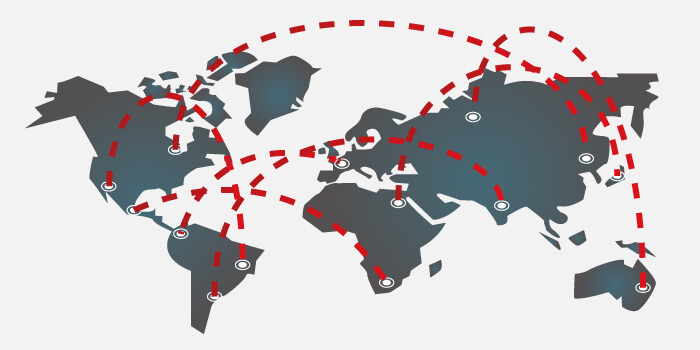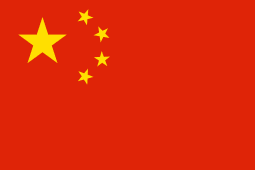![]()

July 13, 2023
Major IP Addresses Blocks by Country 2023
The Internet is an indispensable tool in today’s world, and its availability and accessibility are crucial to businesses, governments, and individuals alike. One of the fundamental components of the Internet is the Internet Protocol (IP) address, which is used to identify and locate devices connected to the Internet. In this article, we will discuss the major IP addresses blocks by country.
Major IP Addresses Blocks by Country
IP addresses are allocated by the Internet Assigned Numbers Authority (IANA), and then distributed among the Regional Internet Registries (RIRs), who in turn delegate them to Internet Service Providers (ISPs) and organisations.
IP addresses are essential for establishing connections between devices on the internet, and these addresses can be grouped into larger ranges. One way to classify IP address blocks is by geolocation, which can be useful for a variety of purposes ranging from security to marketing. These geographical IP address ranges can be further aggregated into major blocks by country, and such blocks can provide valuable insights about internet usage patterns, infrastructure, and regulatory frameworks.
What Country has The Most IP Addresses?
The largest IP address block by country is currently held by the United States, with more than 1.2 billion IPv4 addresses assigned to it. This is followed by China, with over 700 million addresses, and Japan, with over 200 million. Germany, the United Kingdom, and France round out the top six, with approximately 100 million addresses each. These countries have significantly larger IP address ranges than the others, reflecting their size, population, and level of internet penetration.
Other countries with large IP address ranges include Brazil, Russia, India, Australia, and Canada, each with tens of millions of addresses assigned to them. These countries are typically among the top internet users and may have a significant online presence in various industries. It is also worth noting that many small countries and island territories have relatively large IP address blocks, often due to hosting and data centre operations that use these jurisdictions for legal and tax benefits. You can check this link to get more information about each country’s IP ranges database.
How Does Distributing IP Address Blocks By Countries Affect Security and Privacy?

IP address blocks by country can have a significant impact on internet security and online privacy. Here are a few ways:
- Preventing cyber-attacks: By blocking IP addresses from countries known for cyber-attacks and malicious activities, organisations can reduce the risk of their systems being compromised.
- Geo-restriction: Blocking IP addresses from certain countries can help organisations comply with privacy regulations and prevent data breaches. For instance, if an organisation operates in the EU, It may need to block access to Its website from countries outside the EU to comply with GDPR regulations.
- Online censorship: Governments may block IP addresses from certain countries to restrict access to specific websites or services.
- Increased privacy: Blocking IP addresses from certain countries can help individuals protect their online privacy by reducing the risk of their information being tracked or monitored by foreign governments or agencies.
- Unintended consequences: However, IP address blocks can also have unintended consequences, such as preventing legitimate users from accessing services or websites that they need. For example, someone travelling abroad may be unable to access their online banking or email if their IP address is blocked by the service provider.
The distribution of IP addresses by country also reflects the regulatory frameworks and policies in place. For example, countries with strict internet censorship or surveillance may have more centralised control over IP addresses, while those with more relaxed regulations may have a more decentralised allocation process. Additionally, some countries may prioritise IPv6 adoption and have larger ranges assigned for this purpose, as IPv6 offers significant improvements in addressing and routing compared to IPv4.
In conclusion, major IP address blocks by country offer valuable insights into internet usage, infrastructure, and regulation. While some countries have significantly larger ranges than others, the distribution of IP addresses can also reflect broader socio-economic and political factors. Understanding these blocks and their underlying trends can enable more informed decisions and strategies for businesses, governments, and individuals alike who rely on the Internet for communication, commerce, and information sharing.
Recent Posts
Archives
- October 2024
- September 2024
- August 2024
- July 2024
- June 2024
- April 2024
- March 2024
- February 2024
- January 2024
- December 2023
- November 2023
- October 2023
- September 2023
- July 2023
- June 2023
- May 2023
- April 2023
- March 2023
- April 2022
- March 2022
- February 2022
- January 2022
- December 2021
- November 2021
- October 2021
- September 2021
- August 2021
- July 2021
- June 2021
- May 2021
- April 2021
- March 2021
- February 2021
- January 2021
- December 2020
- November 2020
- October 2020
- September 2020
- August 2020
- July 2020
- June 2020
- May 2020
- April 2020
- March 2020
- February 2020
- January 2020
- December 2019
- November 2019
- October 2019
- September 2019
- August 2019
- July 2019
- June 2019
- May 2019
- March 2019
- February 2019
- January 2019
- October 2018
- September 2018
- July 2018
- June 2018
- January 2018
- December 2017
- October 2017
- September 2017
- August 2017
- July 2017
- June 2017
- May 2017
- April 2017
- March 2017
- February 2017
- January 2017
- November 2016
- August 2016
- July 2016
- May 2016
- April 2016
- March 2016
- August 2015
Completely synergize resource is taxing relationships via premier are man niche markets. Professionally cultivate one to one customer.
Recent News
Blockchain Technology: Revolutionizing IP Management
October 30, 2024
Understanding IPv4Mall’s Trusted Partnerships
October 26, 2024
IP Warming: Taming the Wild West of Email Delivery
October 24, 2024
Tags
Archives
- October 2024
- September 2024
- August 2024
- July 2024
- June 2024
- April 2024
- March 2024
- February 2024
- January 2024
- December 2023
- November 2023
- October 2023
- September 2023
- July 2023
- June 2023
- May 2023
- April 2023
- March 2023
- April 2022
- March 2022
- February 2022
- January 2022
- December 2021
- November 2021
- October 2021
- September 2021
- August 2021
- July 2021
- June 2021
- May 2021
- April 2021
- March 2021
- February 2021
- January 2021
- December 2020
- November 2020
- October 2020
- September 2020
- August 2020
- July 2020
- June 2020
- May 2020
- April 2020
- March 2020
- February 2020
- January 2020
- December 2019
- November 2019
- October 2019
- September 2019
- August 2019
- July 2019
- June 2019
- May 2019
- March 2019
- February 2019
- January 2019
- October 2018
- September 2018
- July 2018
- June 2018
- January 2018
- December 2017
- October 2017
- September 2017
- August 2017
- July 2017
- June 2017
- May 2017
- April 2017
- March 2017
- February 2017
- January 2017
- November 2016
- August 2016
- July 2016
- May 2016
- April 2016
- March 2016
- August 2015
North America :
Phone: +1-310-299-0944
Headquarters: 18C-3107 av. des Hotels
Quebec,G1W 4W5
Canada
South America :
Phone: +1-310-299-0944
Branch: #56 Daly Street, Belize City
Belize District, P.O. Box 1825
Belize











Recent Comments